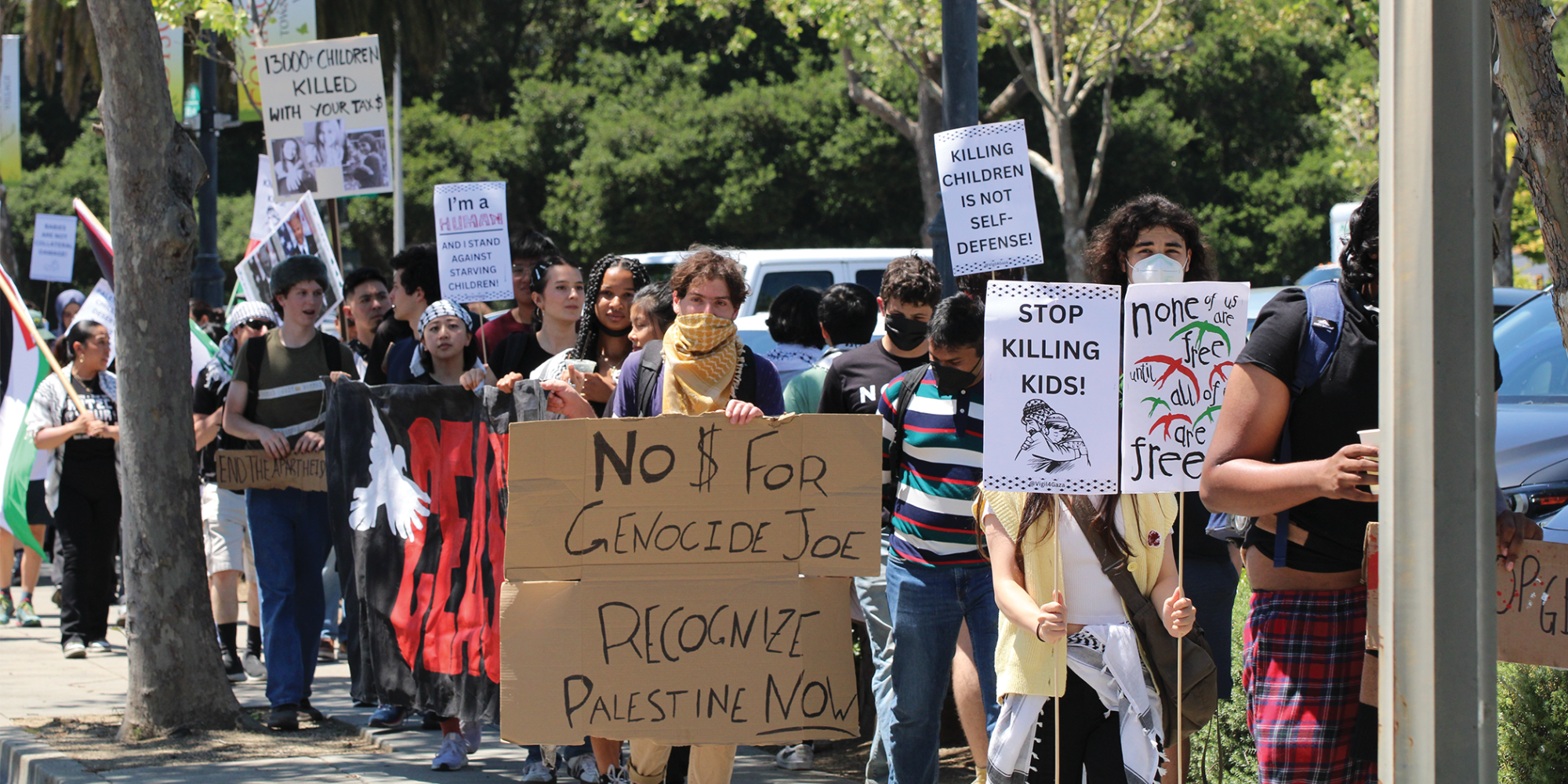When he was 8 years old, senior Faizan Kashmiri attended his first protest. Surrounded by members of his family, Kashmiri was introduced to advocacy not just as a spectator in the 2017 Women’s March after Donald Trump was first elected president, but also as an activist.
“My mother brought me to the Women’s March, and that was my first real taste of it,” Kashmiri said. “Since then, I’ve joined a political organization, the DSA, the Democratic Socialists of America. I consider myself involved in working around labor issues and getting involved in the chapter, which I’ve done after Trump was elected.”
Kashmiri said participating in a strike at Sequoia hospital a few years ago as the youngest protester there allowed him to realize the impact he could have on the world.
“I remember this woman,” Kashmiri said. “She was this older woman, who’d been working there, and she said, ‘Never have I seen such power like this before.’ That really got me involved in organized labor and (understanding the) power people can have in this country.”
Junior Nusaybah Mohsin also said participating in protests helped her find community.
“It’s also empowering to see that you’re around all these other people who care about the same issue.” Mohsin said. “While you’re chanting or holding that sign, you really feel like you’re a part of change.”
However, protests are not the only way to bring social change. Junior Kathryn Chen said she shows her support of causes that matter to her in other ways, choosing to prioritize awareness instead of protesting.
“I am passionate about mental health efforts and environmental concerns,” Chen said. “I stay updated on current events and news related to those subjects, as well as discussing the issues with other people (to) spread awareness.”
Chen said increasing awareness is an option for students who face difficulty engaging in protests.
“San Francisco or Berkeley have a lot more active activism,” Chen said. “(Protests) are not really in Palo Alto because there are time and distance constraints. Even though I would prefer to see a world in which I do more in the future, it feels really hard when you’re in high school. You don’t have full freedom. You can’t vote on issues you care about.”
In addition to logistical constraints, Chen said some students are also afraid of facing backlash from participating in protests.
“I know people who feel deeply about these social issues, but they don’t want to go because they’re worried that it could affect them getting a job or getting into college,” Chen said.
And Mohsin said potential exclusion from Palo Alto discourages genuine advocacy despite the community’s attempts to promote it.
“I think Palo Alto has always been an interesting place,” Mohsin said. “We advertise ourselves as very diverse, and I think to a degree, we definitely are, but there’s always that little bit of fear of saying something that doesn’t go with the general norm.”


